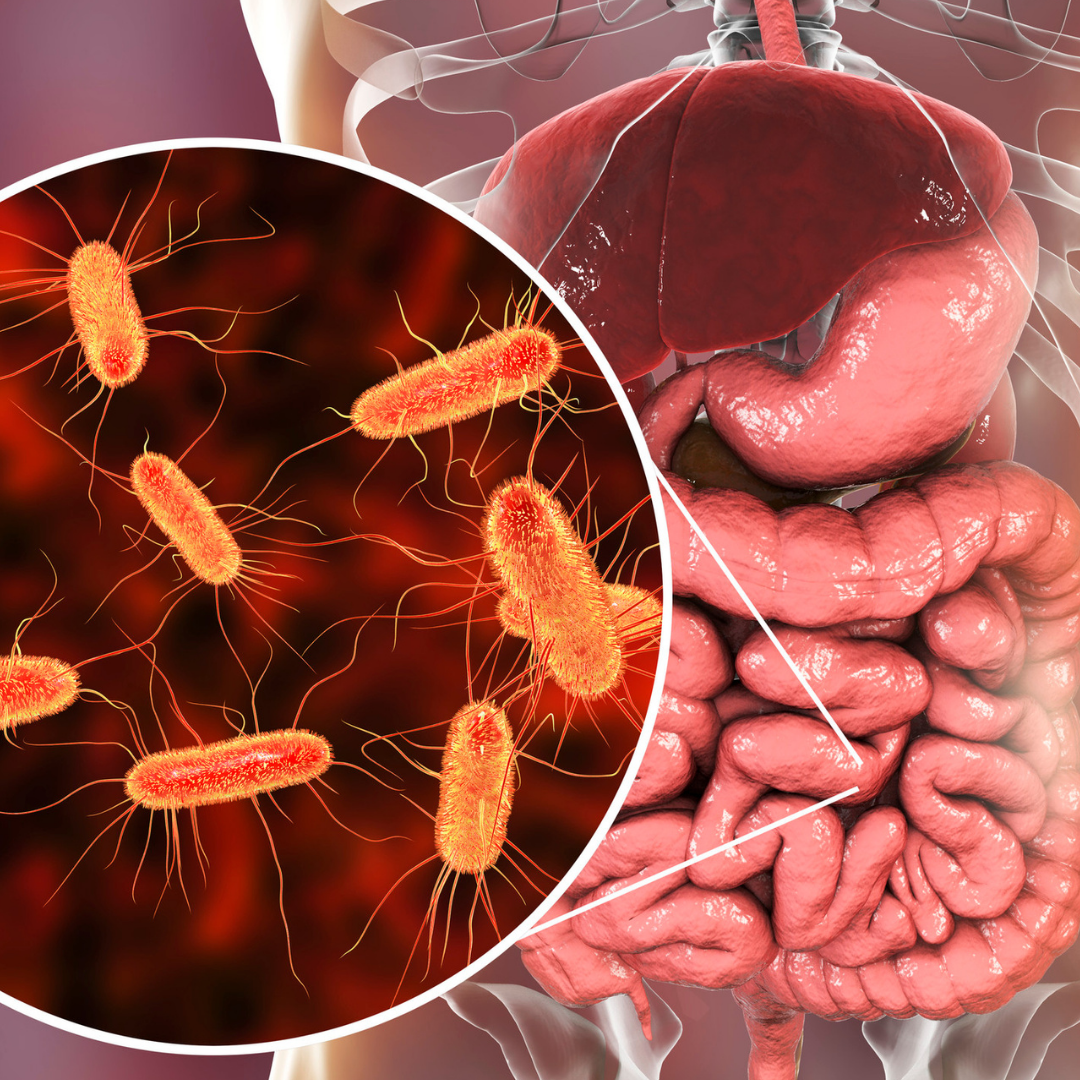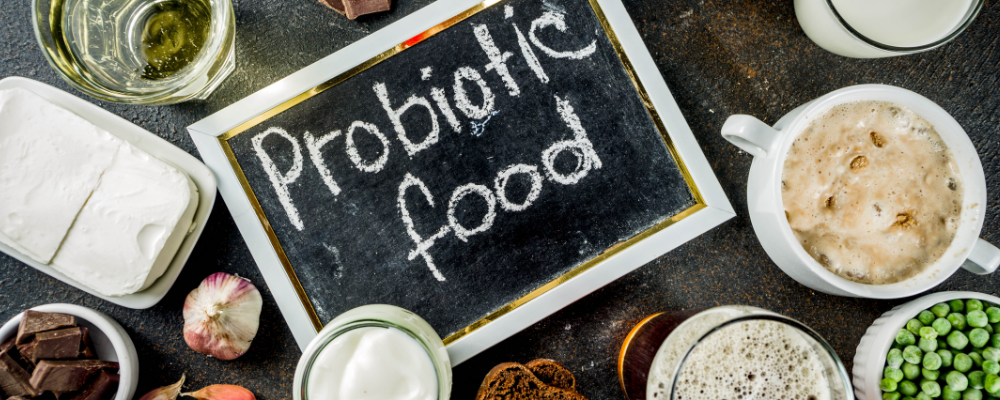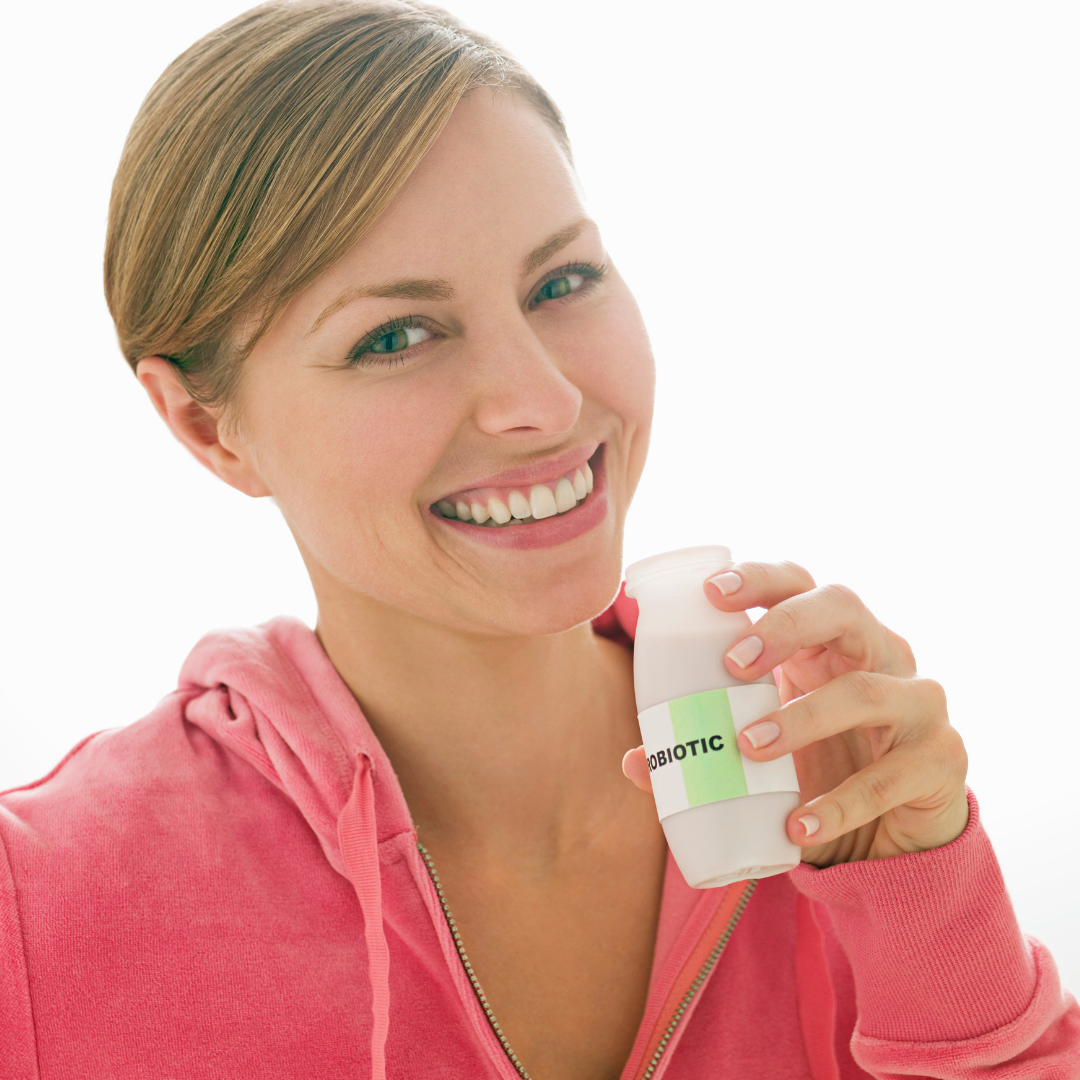With so much focus on gut health over the past few years, most of us have heard of probiotics as support for digestive health. Lately though, the spotlight is shining on prebiotics – they’re also crucial to support a healthy gut.
Do you know the difference between prebiotics and probiotics? If not, you’re in the right place!
Today we look at the different roles of prebiotic vs probiotic foods and supplements the best types to eat to keep your gut happy.
A quick overview of the gut microbiome
Your gut microbiome, also known as microbiota, is an army of healthy bacteria, viruses and fungi that live in your digestive tract. In addition to helping control digestion, your gut microbiome impacts the health of your immune system, brain, skin and even plays a role in mental health.
Put simply, it plays a crucial role in your overall well being.
Our gut is colonised with these microbes early in life. Some studies suggest this happens while we are still in our mother’s womb while others suggest babies gain their microbiome at birth.
Every person’s gut microbiome composition is individual but the bacteria in your gut is passed from your mother’s gut microbiota.
How we are born, what we eat, the amount of antibiotics we take and the bacteria we were born with will impact us growing up and for life.
Feeding your microbiome a diverse mix of gut friendly prebiotic and probiotic foods will help support good digestive health. In turn, this supports your brain, skin, and many other aspects of your health.
What are prebiotics?
When describing probiotics, it may help to understand how they work by thinking about how a lawn grows.
Let’s say you want to plant a new lawn. You need to prepare the soil, scatter the seed and keep it well watered and fed to make sure it grows evenly.
Without being fed and watered consistently, the law gets patchy. It doesn’t grow evenly and the chances that weeds will pop up in those patchy, bare areas are high!
This lawn growth analogy is similar to how the good bacteria in our gut microbiome (the lawn) and prebiotics (food) work.
Prebiotics are the foods we can eat to help the beneficial bacteria grow strong and healthy. With these foods, we are feeding the good bacteria!
If these ‘good guys’ aren’t thriving, the microbiome can become infiltrated by too many bad bacteria, just like the weeds. This throws the delicate balance of good and bad bacteria out of whack.
Prebiotics are fibre-rich foods that feed good bacteria. The fibre in prebiotic food is known as ‘dietary resistant fibre’ which means it doesn’t break down in the stomach and can move to the small intestine where it ferments. This fermentation process gives the bacteria food to feed on to multiply and flourish.
We should always try to get our nutrients from whole foods and eating the freshest, chemical free choices where possible is best for overall health.
Some foods that have good prebiotic qualities are:
- Onion
- Garlic
- Broccoli
- Linseed
- Lentils
- Zucchini
- Cabbage
- Banana
- Prunes
- Apple (pectin)
- Kiwifruit
As the saying goes, variety is the spice of life! Variety is also the key for a healthy gut microbiome.
Good bacteria thrive on diversity so try to avoid eating the same types of fruit and veggies every day. Mix it up so you give your gut plenty of different foods to feed on.
Prebiotic supplements
While it’s best to get our fibre from fresh foods at times we may need to supplement our fibre intake. This can be done by taking dietary supplements such as;
- Partially hydrolysed guar gum
- Oligosaccharides
- Slippery Elm
- Psyllium
- Inulin
- Acacia Gum
If you’re just getting started with a supplement, start small and build up to larger doses to allow your body time to adjust. You’ll find these kinds of supplements are particularly beneficial if you’re dealing with diarrhoea, constipation, inflammatory bowel disease (IBS) and skin issues.

What are probiotics?
While prebiotics are fibre rich foods that bacteria feed off, probiotics are live bacteria and yeasts we can eat that are beneficial for gut health.
Adding foods high in probiotics is great for your overall health and especially beneficial if you have been taking antibiotics which basically wipe out all bacteria – good and bad – from your gut. Probiotics can help rebuild the colony of beneficial bacteria.
If you’re dealing with skin concerns like eczema acne or psoriasis, food poisoning or gastro complaints probiotics are also very beneficial.
Probiotic foods are easy to find and incorporate into your diet. A few common examples include:
- Natural Yoghurt
- Fermented foods such as kefir, sauerkraut, kampuchea, kimchi, miso, and tempeh.
Important: if you have methylation or histamine intolerances fermented foods should be avoided or limited.
- Cheddar
- Gouda
- Mozzarella
- Sourdough bread
- Traditional natural Buttermilk
Probiotic supplements
Taking a probiotic supplement is not a one size fits all approach. If you’re looking to boost your overall health in general, a broad spectrum probiotic supplement can help.
However, if you’re dealing with a specific condition, different types of probiotics may be more beneficial than others.
I recommend going to a chemist with a naturopath on duty who can direct you to the most suitable probiotic for your presentation.
Want to talk to someone for more guidance about your digestive health? I suggest getting in touch with my friend and colleague Angie Sinclair, the Digestive Detective. Angie offers a free 15min phone consultation to help understand your needs. Reach out to her if you want some extra support!
How our gut microbiome affects our skin
 What is going on inside your gut is often reflected in your skin. Essentially, an unhealthy gut microbiome can lead to skin concerns, particularly inflammatory conditions, such as acne, rosacea, psoriasis, and eczema.
What is going on inside your gut is often reflected in your skin. Essentially, an unhealthy gut microbiome can lead to skin concerns, particularly inflammatory conditions, such as acne, rosacea, psoriasis, and eczema.
Your skin is your largest organ with its own microbiome which is in constant communication with your gut microbiome.
They talk to each other via various chemical signals and receptors. If your gut is unhappy (aka unbalanced and unhealthy) it communicates this to the skin where this imbalance can present itself as a physical skin concerns
I talk in more detail about this fascinating relationship between the skin and gut in my previous blog, The Gut Skin Axis: Why Your Gut Is Key To Healthy Skin. I recommend having a read of the article to understand more about how you can support skin health by keeping your gut healthy.
